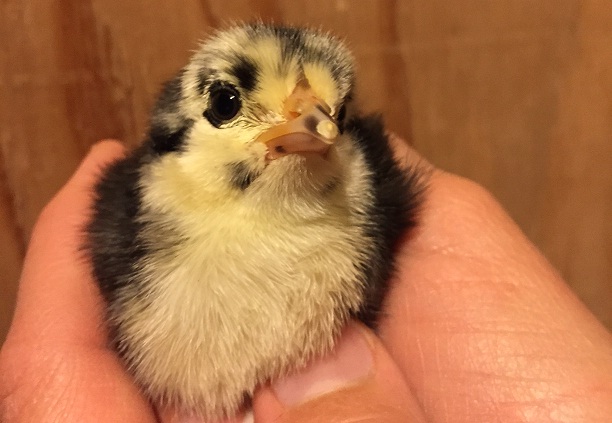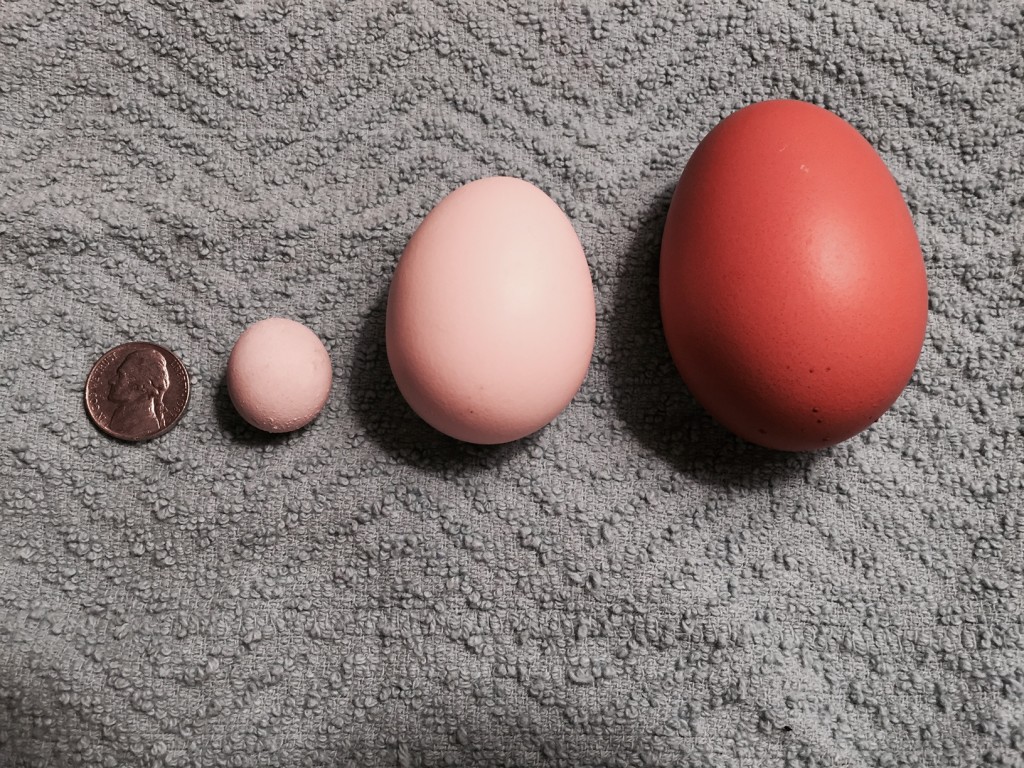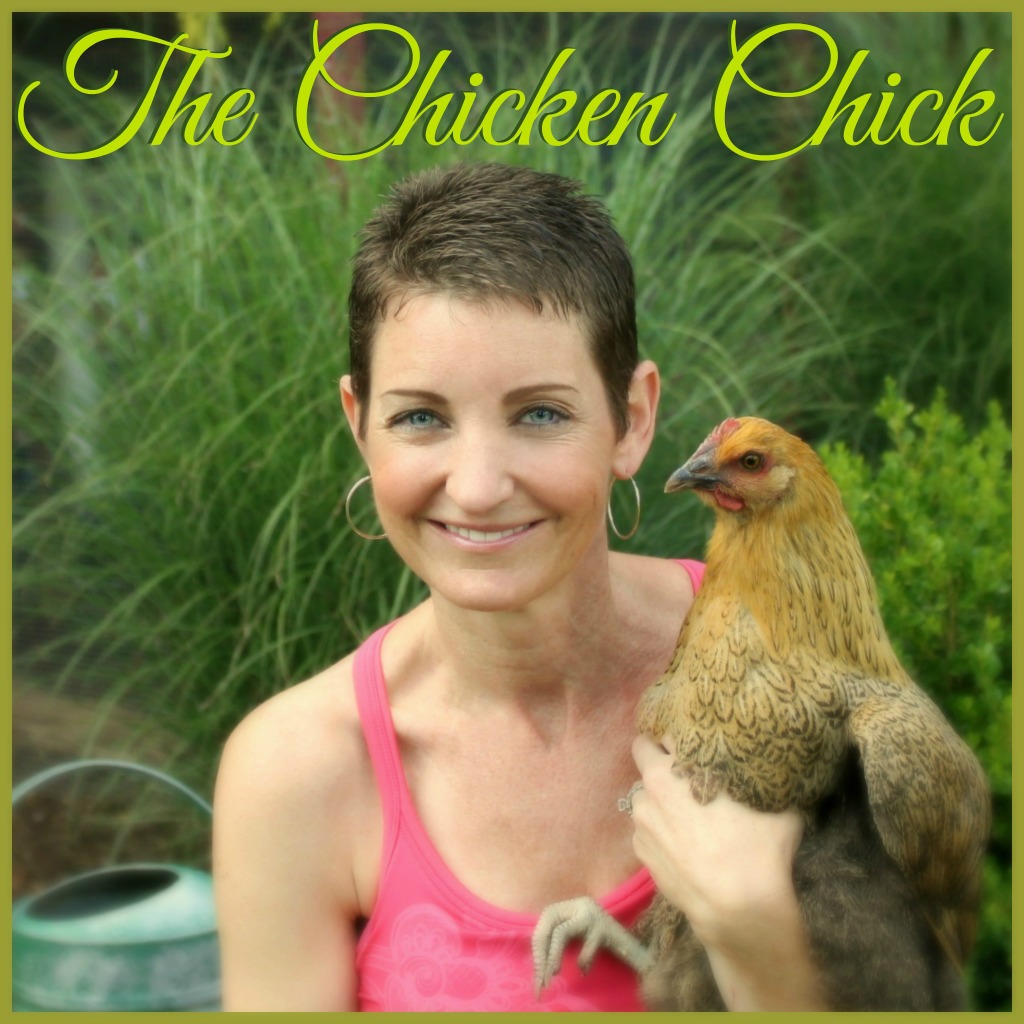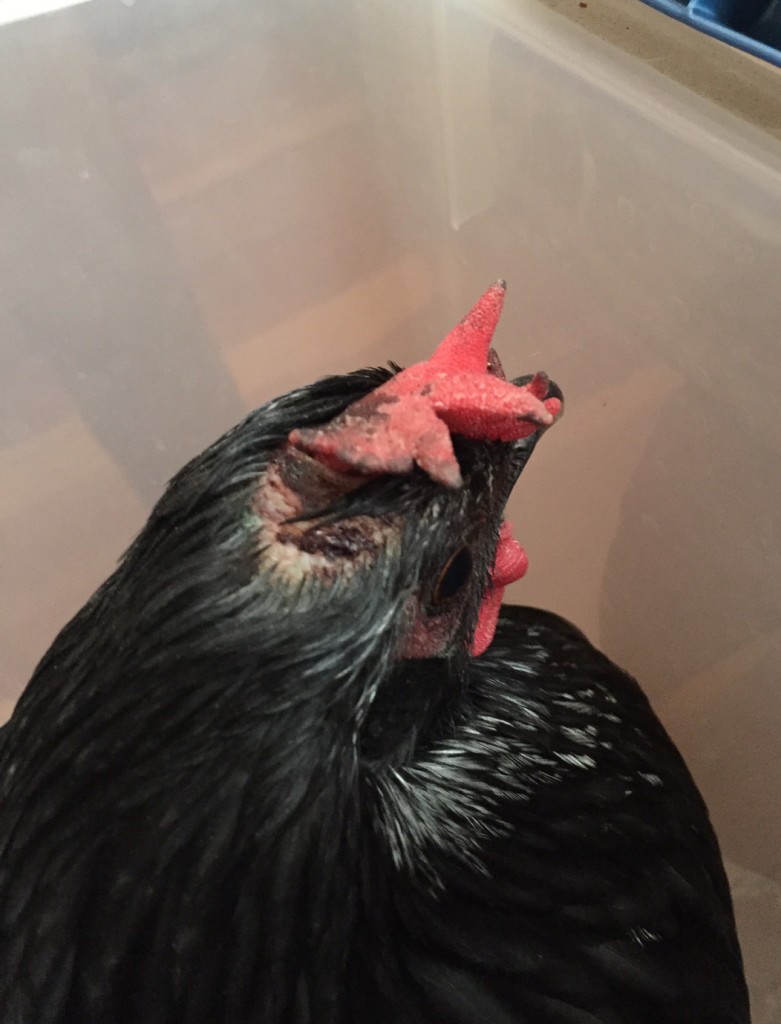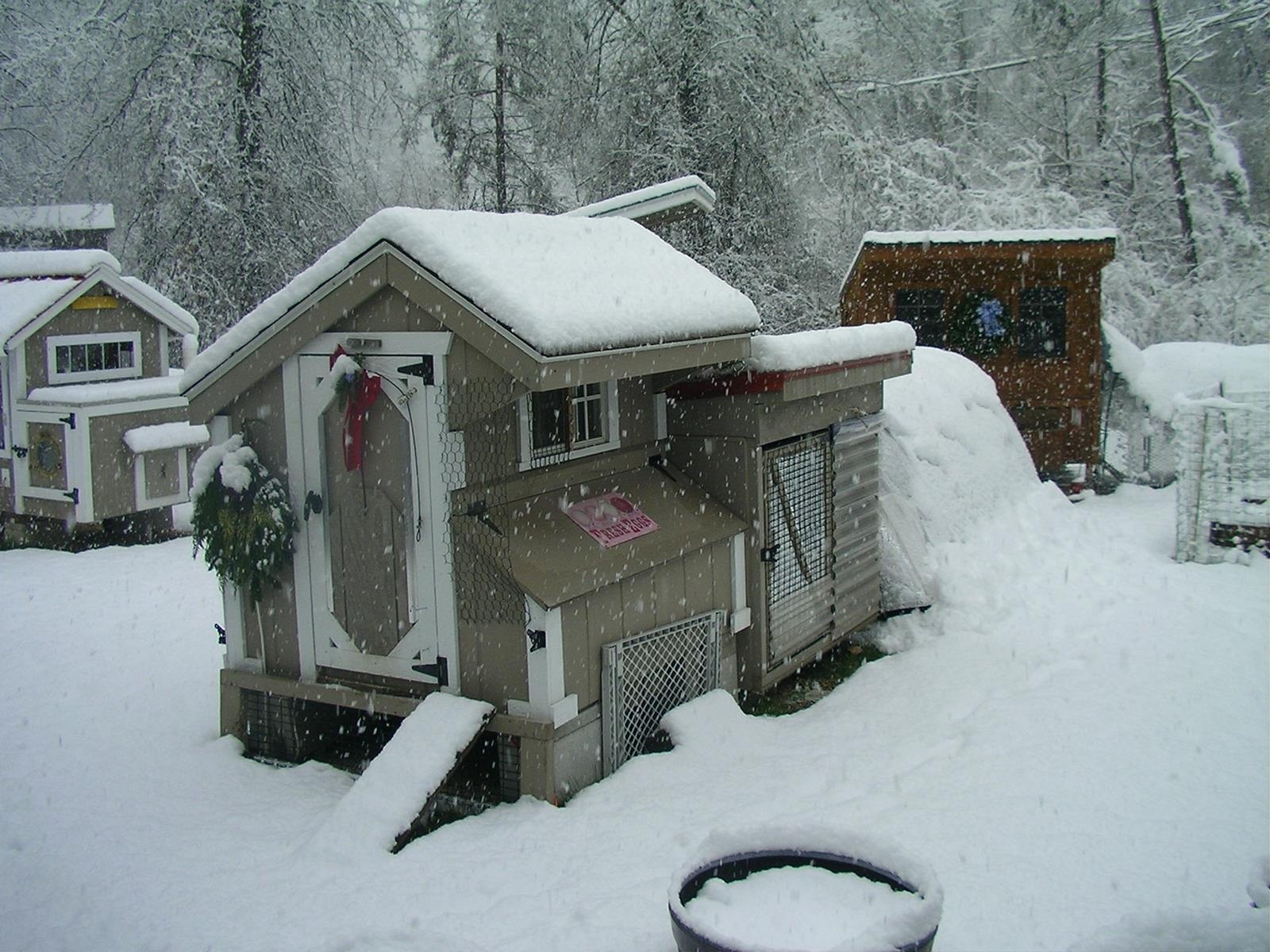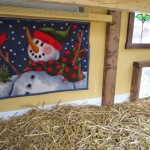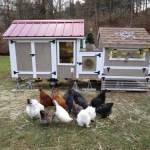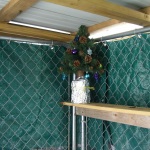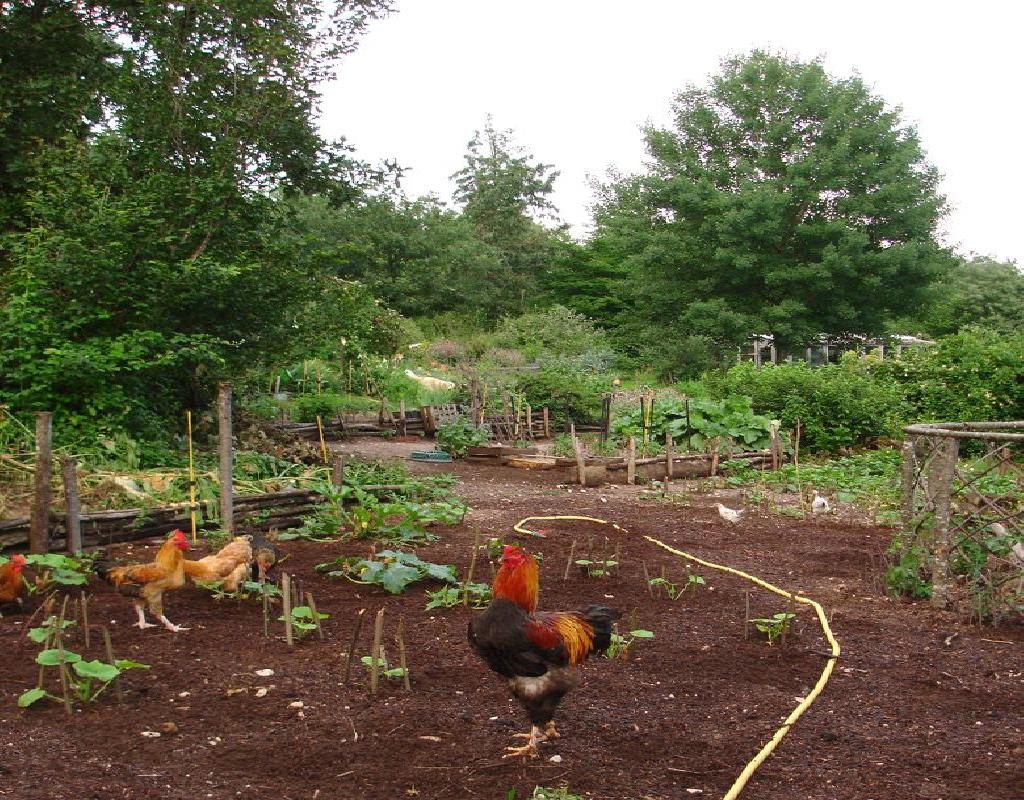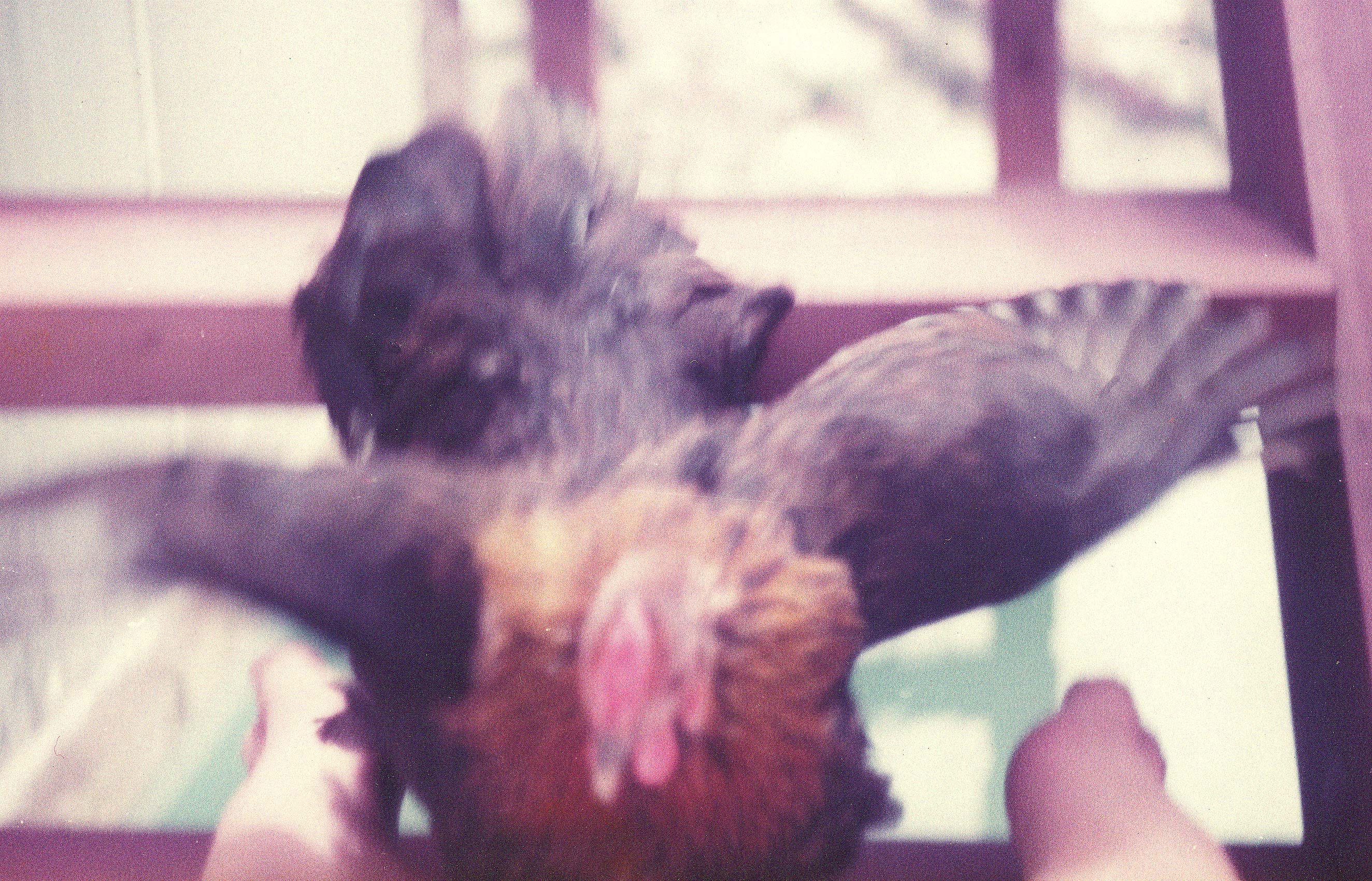The ability for birds to develop teeth was lost approximately 70-80 Million years ago. Yet all birds are born with what is called an “egg tooth.” Though called a tooth the egg tooth is actually a horny protrusion of harden skin found at the tip of the chick’s beak. The egg tooth is shaped in a point and is an essential part of the gestation process. Continue reading
UCP Blog 020: Tiniest Egg EVER!
My newest flock members (a set of five pullets – three Blue Bresses and two Sulmtalers) are not all laying quite yet. The Sulmtaler pair, (which I’ve named Frick and Frack) is definitely laying semi-regularly. The Blue Bresse hens though are much smaller than the Sulmtalers and not laying at all. Well, not laying at all until recently. Continue reading
UCP EPISODE 056: Winning the Chicken Legal Fight (a Conversation with Kathy Shea Mormino)
In 2013, the United States Department of Agriculture (USDA) studied urban chicken keeping in four major cities (Denver, Los Angeles, Miami, and New York City) and discovered that less than 1% of households had backyard chickens. The study however further revealed that though only 1% had chickens another 4% of the study’s respondents reported that they planned to get backyard chickens in the next five years. Interestingly, slightly more than half of the study’s respondents said that they thought keeping chickens in urban areas would lead to more illnesses in humans and yet 2/3 of the respondents in Los Angeles, Miami and New York (and 3/4 of the respondents in Denver) also said that they believed that eggs raised in small flocks in backyards were more nutritious than their store bought counterparts. What do these study results mean?
Americans are divided on backyard chickens.
This nearly even split on the issue of urban chickens is evident in the on-going great chicken debate that is being argued in every corner of this nation. The competing interests between autonomy over one’s own backyard to raise chickens and live as one chooses is at odds with the beliefs that chickens are strictly a livestock animal that has no place in an urban/suburban landscape. When these diametrically opposed views on chickens happen to live next door to one another, sparks fly.
Kathy Shea Mormino, more commonly known as the Chicken-Chick, comes onto the Urban Chicken Podcast to discuss her long fought legal battle over her backyard flock. The bitter, year long fight over her chickens was not only emotionally and financially draining, but threatened to cost Mormino her livelihood. Continue reading
Podcast: Play in new window | Download | Embed
Subscribe: Apple Podcasts | RSS
UCP Blog 019: Setting Up a Chicken Sick Bay
It is an unavoidable part of keeping backyard chickens – at some point one of your flock members is going to get injured or become ill. In these situations you need to be able to create a workable “chicken sick bay” indoors where you can provide the necessary chicken nursing care. The need to be able to dispense home chicken health care is especially true with the general shortage of veterinaries with poultry expertise at a reason price in today’s world. Recently, I found myself scrambling to assemble a makeshift “chicken sick bay” to care for an injured pullet. Continue reading
UCP Blog 018: Christmas for Chickens and the Coop
Urban Chicken Podcast listener, Deb Bino recently shared photographs of her sharing holiday cheer with her flock. Deb decorates her chickens coops with Christmas wreaths, lights, and even miniature Christmas trees. Her hens are not forgotten when it comes to marking the season.
Check out Deb’s Christmas chicken coop decorations below. Maybe Deb’s photos will inspire you to brighten up your own chicken coop this Christmas with some trim and ornaments!
- Holiday Wall Hanging inside Coop – photo by Deb Bino
- Coop with Lights and Tree – photo by Deb Bino
- Coop’s Mini Christmas Tree – by Deb Bino
SUPPORT THE URBAN CHICKEN PODCAST:
- Support the Urban Chicken Podcast by shopping Amazon starting here: Amazon
- If Amazon is not your thing – you could also support the show HERE
UCP Episode 055: Listeners Q and A Session #4 – Understanding Sex-Links, Bad Broodies & Plants Toxic to the Flock
Today on the Urban Chicken Podcast, I answer more chicken questions posed by listeners in Session #4 of Listeners’ Q & A series. The chicken issues being discussed and considered in this session are: 1) understanding “sex-link” chickens; 2) dealing with a bad broody hen; and 3) learning which common yard and house plants are toxic to feed to your flock.
Podcast: Play in new window | Download | Embed
Subscribe: Apple Podcasts | RSS
Spontaneous Sex Reversal Study Chart
CALLING ALL SEX REVERSED CHICKEN STORIES!
Do you have a chicken (hen or rooster) which you believe has undergone a spontaneous sex-reversal? Then share your chicken’s information with the Urban Chicken Podcast to be included in our (not exactly) scientific study on this phenomenon.
Please send your bird’s details to the Urban Chicken Podcast through the CONTACT PAGE. Be sure to include all of the relevant information which is listed below on the chart categories.
UCP Blog 017: Another Sex-Reversed Hen Reported to the UCP
I recently had yet another report of a possibly sex-reversed hen! Here is the initial message that I received:
Hi,
I just listened to your sex reversal chicken podcast. I have a hen that is about two and a half years old. In the last two weeks she has rapidly started to reverse to a male. I am a PhD in biology. Once I noticed my little Lulu was sex reversing I wanted to learn more about how common this is. I am shocked about the lack of information on the topic. When I heard you wanted to collected some data I got very excited. I wanted to find out how many other people you had heard from.Thanks,
Angela
UCP Guest Post 001: The Beginning of My New Zealand Urban Chicken Love Affair – by Fiona Campbell
Today’s Post is provided by UCP guest blogger, Fiona Campbell, an avid backyard chicken keeper living in rural Kapiti, New Zealand on five  acres. Fiona is the author and illustrator of the book, “Ruby’s Diary,” which is a chicken memoir penned from the point of view of her top hen, Ruby. The book cleverly considers what is important in life (which is remarkably the similar whether that be a human or chicken life). You can follow Ruby the hen’s the daily record of the Fiona’s flocks life and happenings on her blog, LINK HERE. Fiona’s book, “Ruby’s Diary” is also available on her blog website, Ruby’s Diary Hen (LINK).
acres. Fiona is the author and illustrator of the book, “Ruby’s Diary,” which is a chicken memoir penned from the point of view of her top hen, Ruby. The book cleverly considers what is important in life (which is remarkably the similar whether that be a human or chicken life). You can follow Ruby the hen’s the daily record of the Fiona’s flocks life and happenings on her blog, LINK HERE. Fiona’s book, “Ruby’s Diary” is also available on her blog website, Ruby’s Diary Hen (LINK).
———————————————————————————————
I have had urban chickens for nearly 40 years now. While that makes me feel real old, it is actually just a reflection of how young I was when I got my first feathered friends.
I got my first backyard chickens when I was 8 years old and my mum was sick in bed with the flu. It took a lot to fell my mother, so she must have been very crook! It was a good time to strike. “Mum,” I said, “Can I have some baby chickens?” Continue reading
UCP Blog 016: List of Plants Toxic to Chickens
Many of these poisonous plants are found in the average home and yard. These plants have different levels of toxicity – some can be nibbled on in small quantities with little or no harmful effects. When allowed to free-range, chickens are usually smart enough to avoid eating these toxic plants, so you don’t need to go and rip them out from your yard immediately in order to protect your flock. However, you do need to be mindful that you are not trying to feed these plants to your birds particularly (e.g. putting cuttings of these plants in the flock’s run where they are locked up and might feel compelled to eat these dangerous plants.

